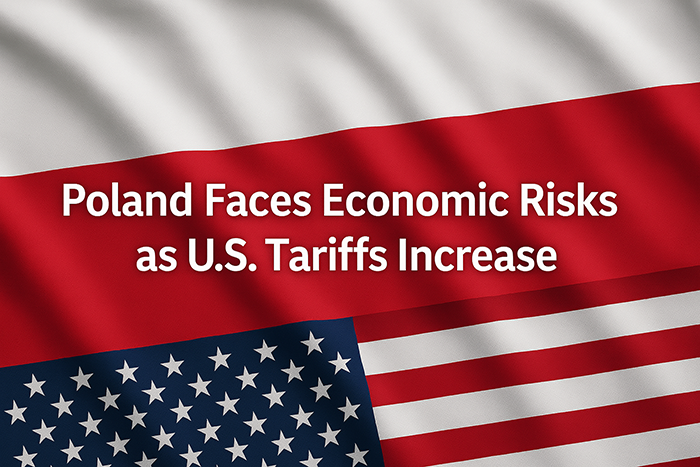2025-04-08
indicators

The recent announcement by Donald Trump to raise tariffs on a broad range of imported goods—potentially up to 60% depending on the country—has caused significant disruption in global markets. Stock exchanges across Europe and Asia fell sharply following the news, as investors reacted to concerns about rising inflation and a potential slowdown in international trade. Poland is likely to be among the countries affected by these measures. Key export sectors such as automotive, machinery, electronics, and steel could face indirect consequences, especially through their integration into German supply chains. Much of Poland’s industrial output is exported to Germany, where it is then re-exported to markets including the United States. A slowdown in German exports could therefore have a knock-on effect on Polish businesses. Prime Minister Donald Tusk has estimated that the economic impact on Poland could reach 0.4% of GDP. This would represent a loss of over PLN 10 billion across companies, employees, and public finances. While this reflects the immediate consequences of the tariff changes, further risks include higher prices for imported goods, reduced investment, and slower overall economic growth. The European Union is considering possible retaliatory measures, which could escalate tensions and lead to a broader trade conflict. Economic history shows that protectionist policies often produce negative outcomes, raising costs and limiting innovation without delivering long-term benefits. For an open, export-driven economy like Poland’s, engaging in a trade war may be counterproductive. Instead, experts suggest that Poland focus on strengthening its economic fundamentals. Steps such as simplifying business regulations, lowering the tax burden, and supporting private investment and innovation could help build resilience. Maintaining economic openness, which has been central to Poland’s growth over recent decades, may be a more sustainable response to growing protectionism on the global stage. Source: WEI

